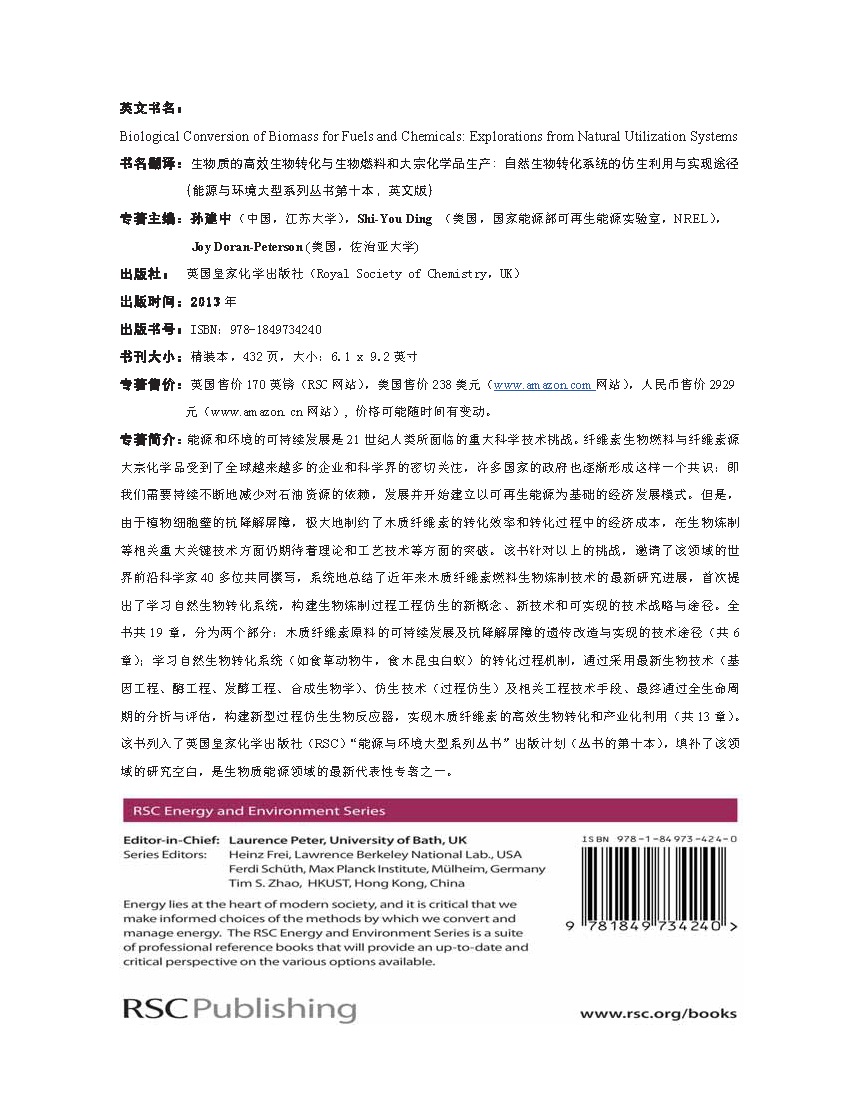
 Biological Conversion of Biomass for Fuels and Chemicals : Explorations from Natural Utilization Systems
Biological Conversion of Biomass for Fuels and Chemicals : Explorations from Natural Utilization Systems
Editor(s): Jianzhong Sun, Shi-You Ding, Joy D Peterson
Description
This book is divided into two parts. The first covers biomass modification to facilitate the industrial degradation processing and other characteristics of feedstocks. These include reduction in the general recalcitrance of plant cell wall and downstream processing costs. The second focuses on cutting edge technologies for the conversion of lignocelluloses into biofuels and other products. It describes the most up-to-date advances in natural biomass utilization systems, such as wood-feeding termites and animals that efficiently degrade lignocellulosic substrates. Consolidated bioprocessing (CBP) integrates cellulase production and cellulose hydrolysis, with pentose and hexose fermentation in a single step. This replicates what happens in the digestive systems of animals, such as termites and cows, that effectively degrade lignocellulosic substrates. CBP has the potential to reduce production costs and lower capital investment whilst increasing conversion efficiency. Currently, there are no CBP-enabling micro-organisms suitable for industrial applications. Consequently, this book presents technologies which integrate the lignocellulolytic systems of insects and other animals to advance CBP strategy for cellulosic biofuels. It covers the progress made, and challenges faced, with the utilisation of gene, catalyst, and other unique mechanisms from cellulose-eating animals, as well as cutting-edge technologies developed to reduce the general recalcitrance of feedstocks for processing. This volume makes essential reading for academics and industrial groups concerned with overcoming the challenges inherent in the biological conversion of biomass into fuels and chemicals.